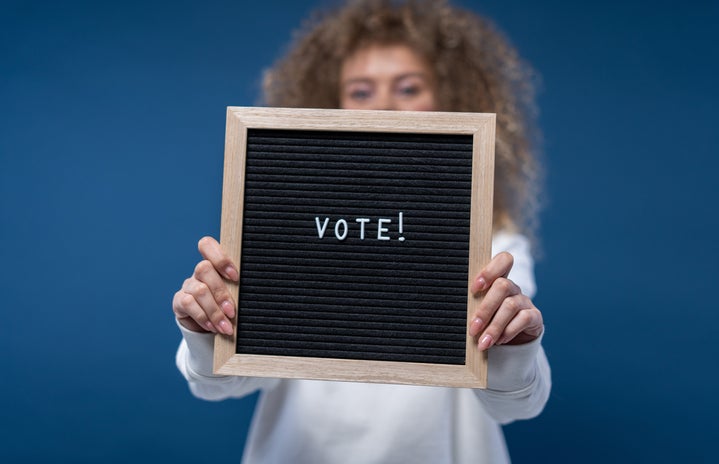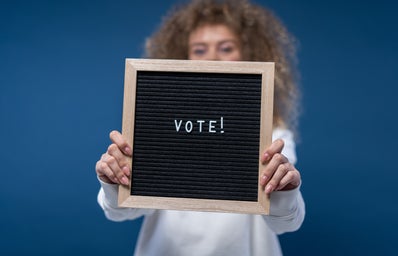Your Vote Counts. Here’s Why.
This November, several issues are on the ballot, as several seats are up for grabs during the midterm elections. Thus, being an informed voter is essential. Here’s a quick rundown on what’s happening in November and which races are especially important for Wisconsin.
Let’s get started with the basics. Election day is on November 8, 2022, and all of Wisconsin’s partisan executive and administrative offices are up for election, including the Governor and Attorney General office, as well as one of Wisconsin’s Senate seats, Wisconsin’s eight seats in the House of Representatives, 17 seats in the Wisconsin State Senate, and all 99 seats in the Wisconsin State Assembly. Winners of the midterm elections are determined by popular vote, as opposed to the electoral college system used to elect the president. In this swing state, many races are extremely tight, especially the Senate race.
Incumbent Ron Johnson (infamous for his numerous conspiracy theories regarding Covid-19 and the 2020 elections) is up against Lt. Gov. Mandela Barnes, the state’s first African American lieutenant governor, for the Senate seat this November. While Barnes is an outspoken progressive and has supported abortion rights, legalizing marijuana, Medicare for All, and criminal justice reform, Johnson is extremely vocal about being anti-choice and has said that anyone who dislikes Wisconsin’s abortion laws “can move.” Johnson has also gone against his own pledge to retire after two terms, and voted against important legislation, including capping insulin costs. Most controversially, Johnson was involved in an attempt to deliver a list of fake electors to former Vice President Pence in order to overturn the election results in Wisconsin.
As of September 2022, Johnson has a 1 percentage point lead against Barnes, according to a poll by Marquette Law. A month prior, immediately after the primary elections, Barnes was in the lead by 7 percentage points, showing how the race is tightening even further as we get closer to election day. Johnson and the Republicans of Wisconsin have started an aggressive advertising campaign, portraying Barnes as “dangerous” for his commitment to police reform.
Another race to pay close attention to is that for Wisconsin Governor between incumbent Democrat Tony Evers and Republican businessman Tim Michels. Evers was elected in 2018, and his campaign promises include increasing resources for Wisconsin’s public schools, fixing public infrastructure and roads, and investing in apprenticeship and job training programs. Michels, on the other hand, formerly served in the U.S. Army for 12 years and is now the co-owner and vice president of an energy and infrastructure construction company. Michels, a newcomer to politics, has described himself as “a businessman, not a politician” (a familiar tune for our former President). Michels, who is endorsed by Donald Trump, has made conspiracy claims about the 2020 elections and even expressed openness to the false idea that Trump’s loss can still be uncertified. The same Marquette Law poll shows that Evers is currently in the lead as of September 2022, but only by 3 percentage points.
Midterm elections are important because they determine the political party that holds the majority in the House of Representatives and the Senate. If Republicans take control of Congress, it’s likely that President Biden’s and the Democratic Party’s policy goals will be halted. These goals include expanding the Affordable Care Act, increasing the federal minimum wage to $15.00/hour, reforming the U.S. criminal justice system, combating climate change, and increasing the number of tuition-free college programs. Historically, the president’s party often loses House seats during the midterms, which could result in Republicans gaining back control of the House and hindering legislation in areas such as immigration and healthcare.
Our local leaders make a huge difference in voting on important issues that affect us, as well as fighting to protect our civil rights on all levels of the government. This is why voting, and being an informed voter, is more important than ever. Given the Democratic Party’s close win in Wisconsin in 2020, we expect to see a fight over our state, and every single vote counts in a race as tight as this one. To learn more about how to vote in Wisconsin, including where and when to vote, UW-Madison students can access vote.wisc.edu or the Wisconsin Campus State Guide here: https://www.campusvoteproject.org/stateguides/wisconsin for more information. So remember to mark your calendars for November 8, and exercise your constitutional right to vote.


